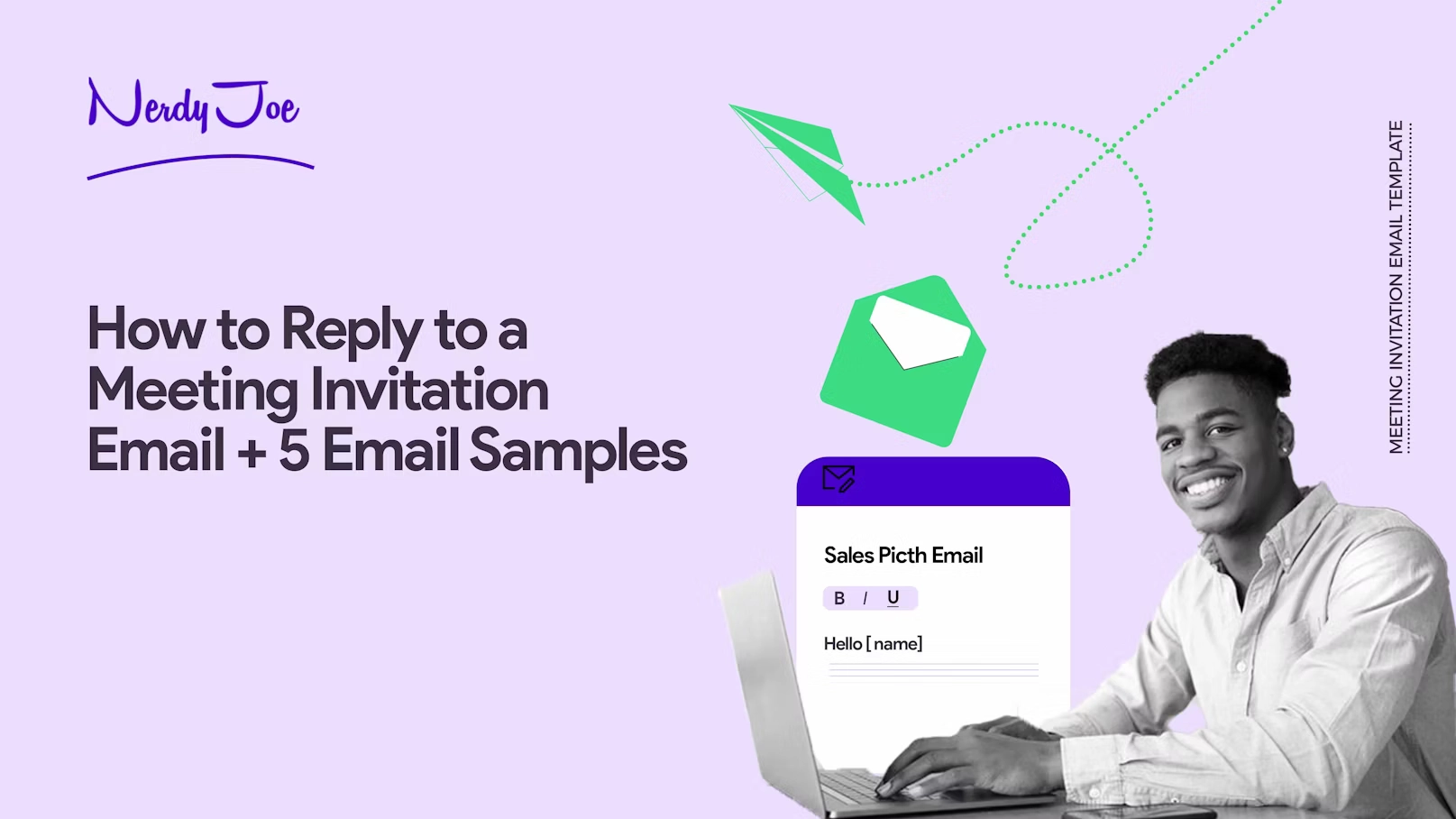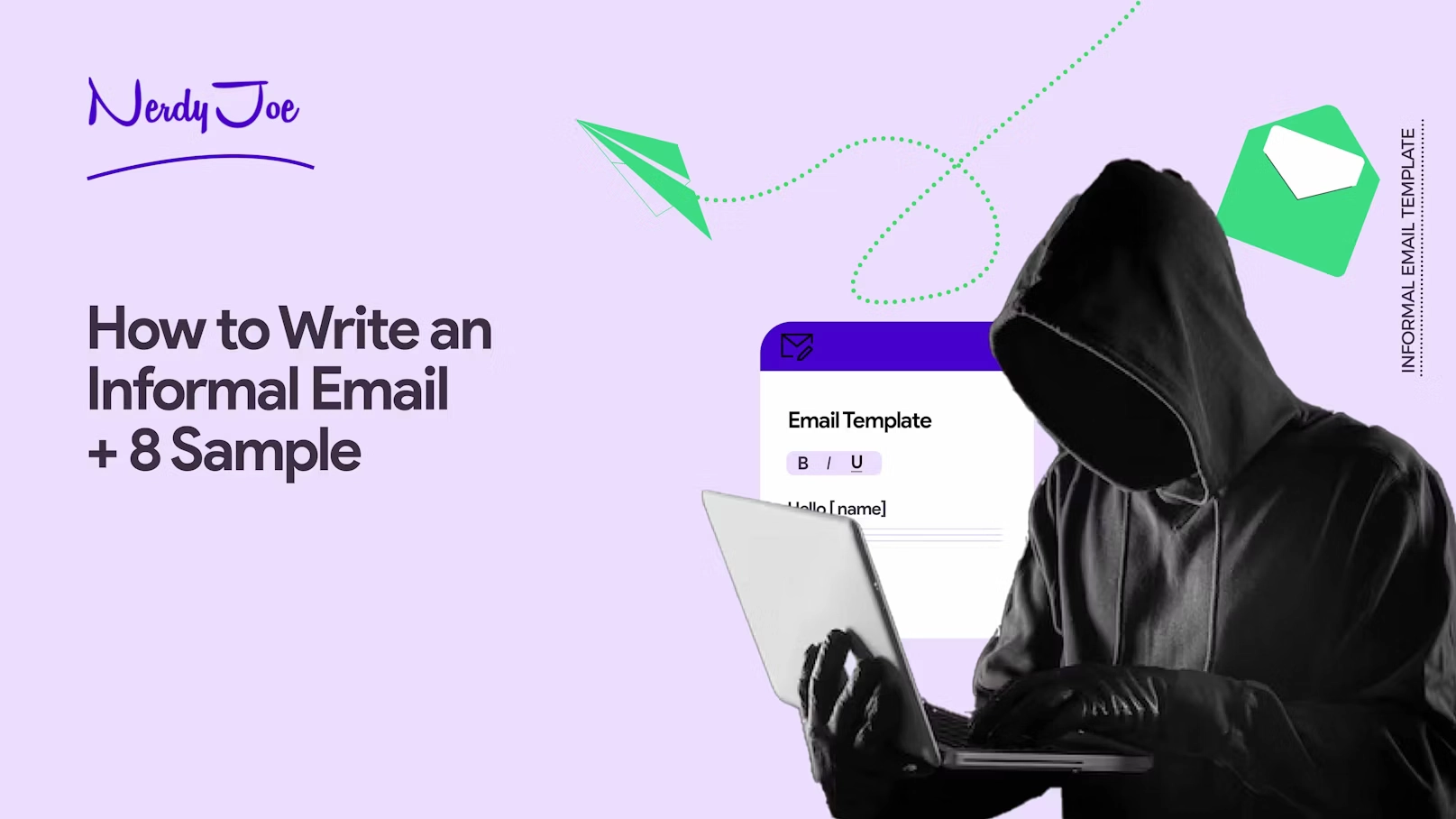We’ve all been there. A meeting invitation lands in your inbox. You glance over the details, mark the date, and then… dread. How do you respond to a meeting request?
While it seems simple, you can’t just reply with a “yes” or “no”. Plus, crafting the right response can be more challenging than you think.
- Should you be formal or informal?
- What details should you include?
- What if you have questions or concerns?
You can quickly find yourself walking on eggshells. The worst part is that if you get it wrong, you risk seeming unprofessional or disinterested. But that’s exactly why we’ve created this article you’re reading.
We’ll walk you through the key elements to include in your meeting invitation reply email and offer formatting tips to ensure you make a lasting impression.
So, let’s get started.
Note: Struggling to get replies or book meetings with prospects that fit in your ICP? We’ll help you get 6 SQLs or book 6 meetings with prospects that are ready to buy for only $999/month. Book a 15-minute consultation now.
How to write a meeting reply email: key elements to include and format to follow
Like we said before, when you’re responding to a meeting invitation, it’s not just about saying ‘yes’ or ‘no’. It’s about showcasing professionalism, attention to detail, and ensuring clear communication.
So, before you start writing a response email to a meeting invitation, you need to get clear on what information or elements you should include in your email. So, let’s start with what you should include in your email.
Key elements to include in your reply for meeting requests
Here’s a quick rundown of the key elements you need to include in your meeting invitation response email:
- Acknowledgment and gratitude: Thanking the organizer for the invitation.
- Confirmation: Indicating whether you can attend.
- Details: Ensuring you understand the time, date, and venue.
- Questions: Raising any concerns or seeking clarity.
- Additional information: Providing any necessary info the meeting organizer might need from you.
Now that we know what to include, next, we’ll discuss the structure or format to follow, and we’ll also break down each element a little further and explain how you craft them.
Meeting invitation reply email format: How to include the key elements and write the reply email
Crafting the perfect response to business meeting invitations requires not just including the essential elements but also presenting them in a logical and coherent format.
Here’s a step-by-step breakdown of how to structure your reply email:
Meeting reply email subject line
Your subject line should be clear. It should instantly convey the purpose of the email to the recipient. You can even make it easy on the sender and let them know your position from the subject line — that means giving a straight answer to the meeting invite. You can also let them know if you have a query as well.
That said, here are some suggestions for reply email subject lines:
- “Regrets: Unable to attend [meeting topic]”
- “RSVP: [event name] on [meeting date]”
- “Confirmation: [meeting topic] on [date]”
- “Query regarding [meeting topic] details”
Meeting response email body
This is the meat of your email, where you incorporate the five key elements mentioned earlier. But first, you have to open the email with a professional greeting.
Email greeting
Start with a simple greeting, addressing the sender by name. For example, you can say “Hello John,” or “Dear Ms. Thompson,”.
Acknowledgment and gratitude
The first thing you should do is acknowledge the invitation and express your gratitude. A simple “Thank you for inviting me to the meeting” can bring this home. It shows appreciation and also immediately establishes a tone of professionalism.
Confirmation
Next, you have to clearly indicate whether you can attend the meeting. Avoid being vague. If you’re available, say so. If not, be sure to offer a brief explanation and ask if there’s a possibility for rescheduling.
Here is an example of a way to say this in your email:
“I’m pleased to confirm my attendance,” or “Unfortunately, I have a prior commitment at that time.”
Details
The idea here is to always double-check and confirm the details. Make sure you understand the time, date, and venue of the meeting. You’ll have to confirm these details in your reply to avoid any future confusion.
Here is a way to phrase this:
“I’ve noted that the meeting is scheduled for 10 am on the 5th of September at the main conference hall. Is that correct?”
Questions
If you have any concerns or require clarification on the meeting agenda, attendees, or any other matter, this is the time to ask. In fact, if anything seems unclear, don’t hesitate to ask.
You can phrase your questions politely and professionally to ensure you’re fully prepared for the meeting.
Here is a phrasing example:
“Could you please clarify the main objectives of this meeting? It’ll help me prepare adequately.”
Additional information
Finally, include any additional information that the organizer might need from you. This could range from dietary restrictions if lunch will be provided to documents you might need to prepare in advance.
It can also be some personal needs or constraints you have that they should be aware of. Here is an example:
“I’ll be joining remotely from our branch office. Kindly share any necessary login details for the virtual meeting platform.”
Meeting reply email ending
End your email professionally. Write an email closing line that demonstrates how you value the opportunity or your regret for not being able to make it — while leaving the door open for further communication.
Next, add a formal or professional email sign-off and attach your signature. Here is an example of a meeting invitation reply email ending:
“I appreciate the opportunity to be part of this meeting and look forward to the discussions.
Best,
Ernest O. Douché
Director of Customer Service Team
Laulos Enterprises
Email: ernest.d@laulos.com
Direct Line: 0-789-163-452”
5 meeting invitation reply email samples to get you started
Here are five different reply email samples tailored to specific scenarios:
Sample 1: Aormal meeting invitation acceptance email
When accepting a formal meeting, show professionalism and thank the other party. Also, make sure to confirm details and display eagerness to participate. Here is an email sample for accepting a formal meeting invitation.
Subject line: Confirming attendance: Board meeting on June 10th
Dear Mr. Anderson,
Thank you for the invitation to the Board Meeting scheduled for June 10th at 9 am in the Sapphire Conference Room. I’m pleased to confirm my attendance and look forward to contributing to the discussions.
Warm regards,
Emily Thompson
Director of Marketing
Sample 2: Politely declining a meeting invitation
This happens more often than you think, and it shouldn’t stress you. If you can’t attend a meeting, then decline respectfully. Ideally, you can state a/the reason without going into excessive detail.
Still, thank them for the invitation and end with a gesture of continued collaboration or a wish for a successful meeting. Here is a meeting invitation reply email sample for this:
Subject line: About the team strategy session on June 12th
Hello Sarah,
Thank you for the invitation to the Team Strategy Session on June 12th. Unfortunately, I have a prior engagement that conflicts with this time. I hope the session is productive, and please keep me updated on the outcomes.
Best wishes,
Jordan Mitchell
Sample 3: Asking for a reschedule
When requesting a reschedule, you have to provide a legitimate reason and be flexible with new timings. Start by thanking the sender, explain your scheduling conflict, and suggest alternative dates or ask for their availability. Here is a sample you can learn from:
Subject line: Request to reschedule: Client onboarding session on June 15th
Dear Henry,
Thank you for scheduling the Client Onboarding Session on June 15th. Due to an unforeseen commitment, I’m unable to attend on this date.
Would it be possible to consider rescheduling to June 17th or 18th? I apologize for any inconvenience and truly value this session.
Kindly let me know.
Best,
Alexa Roberts
Sample 4: Accepting an informal meeting invitation
For informal meetings, a friendly and enthusiastic tone works well while still being clear about the meeting’s details. So, express yourself in a casual tone, thank them, confirm your attendance, and share any other relevant details or sentiments. Here is a sample email for this:
Subject line: Count Me In! Coffee Catch-up
Hey Mike,
Thanks for reaching out! I’m all set for our coffee catch-up on June 20th at The Brew Corner. Excited to catch up and hear more about your new project.
See you then,
Liam
Sample 5: Seeking further details
If an invitation lacks clarity, it’s okay to ask for more details. Just be sure to remain courteous and professional. Thank the sender for the invitation and request the specific information you need. Ensure your query is clear and concise. Here is an email sample you can use here:
Subject line: June 25th Workshop: Seeking more information
Hello Dr. Green,
Thank you for the invitation to the workshop on June 25th. Could you please provide more details about the topics that will be covered and any preparatory materials I should review beforehand?
Appreciate your guidance,
Olivia Grant
2 meeting invitation response email templates you can customize
Based on the content above and the different samples, we’ve crafted a simple and straightforward meeting invitation reply template you can customize to reply to your meeting invitation emails. Here you go:
Template 1: When you want to reply “yes” to the invitation
Subject line: Meeting confirmation: Strategy meeting on 9th August
Hello John,
Thank you for inviting me to the team’s strategy meeting. I’m happy to confirm my attendance.
To confirm, the meeting is set for Monday, 9th August at 3 pm in the main conference room. May I know who will be presenting the financial report during the meeting?
Also, I have dietary restrictions and would appreciate vegetarian meal options during the lunch break.
I appreciate the opportunity to be part of this meeting and look forward to the discussions.
Kind regards,
[your name]
[your contact information]
Template 2: When you want to reply “no” to the invitation
Subject line: Unable to attend: [meeting details]
Dear [recipient’s name],
Thank you very much for the invitation to [meeting topic/event name] on [date]. I appreciate the opportunity to join and contribute.
Regrettably, due to [a prior commitment/scheduling conflict/personal reasons], I won’t be able to attend this time. I hope you understand.
I’m keen on staying informed about the discussions and outcomes of the meeting/event. If possible, I’d appreciate any notes or follow-up materials that could be shared afterward.
Thank you for your understanding, and I hope the [meeting/event] is both productive and successful. I look forward to participating in future events or discussions.
Warm regards,
[your name]
[your contact information]
Key takeaways
- Every meeting confirmation email reply should include acknowledgment and gratitude, a clear confirmation of attendance status, an understanding or clarification of details, any pertinent questions, and additional relevant information. These elements ensure clarity.
- Saying “no” to a kind invitation requires tact. It’s essential to provide a reason, even if briefly, and express continued interest in the subject matter or future events. This maintains the relationship’s positive trajectory and keeps doors open for future interactions.
- Responding to meeting invitations isn’t just about acceptance or refusal. Keep in mind that the other attendees may also be reading the email. So, you have to respond in a way that’s formal and shows your attention to detail and communication skills.
- Need help with email marketing and lead generation? We are ready to help. Nerdy Joe can help you get stellar results from our sophisticated email marketing efforts. Talk with us today.
Note: Struggling to get replies or book meetings with prospects that fit in your ICP? We’ll help you get 6 SQLs or book 6 meetings with prospects that are ready to buy for only $999/month. Book a 15-minute consultation now.


![How to Generate B2B Leads With Cold Outreach [Case Study]](https://nerdyjoe.com/wp-content/uploads/2024/06/1669218674-artboard-1-copie-4-3x-1-scaled.webp)
